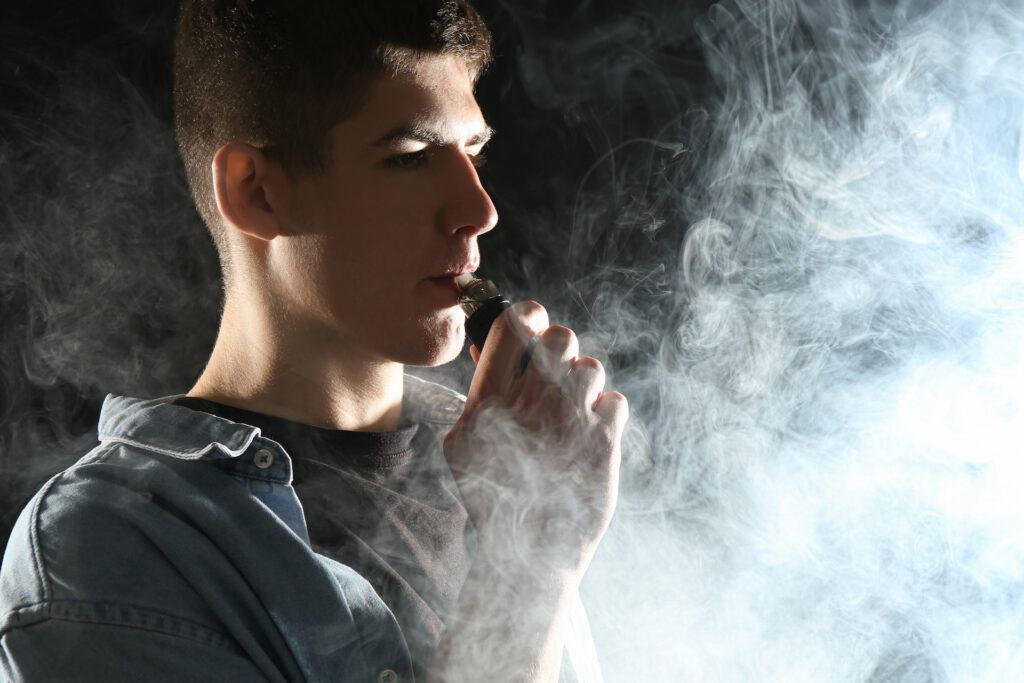If you’re a parent or caregiver, kudos to you. Kids certainly don’t come with an instruction manual, and it can be hard to know how to support a child. Even in the best of times, parenting is inherently challenging, and that’s pretty much par for the course.
But when children struggle with substance use and addiction, the task becomes even more complex. And with the risks of overdose being higher than ever, it can feel like there’s a sense of urgency to deal with the issue, with little room for error.
So, how can we approach such a serious and time-sensitive thing without pushing away our loved ones? How can we talk so that children will listen, and listen so children will talk?
In this article, we explore some knowledge, strategies, and ideas that can help you navigate this difficult path.
Understanding Substance Use and Addiction in Young People
We can’t stress enough the importance of educating yourself when it comes to addiction. Having a solid foundation of knowledge helps not only to demystify and destigmatize addiction but also to equip you with the tools and understanding necessary to support loved ones effectively. When it comes to substance use and addiction in young people, there are a few things you should know.
Firstly, substance use can affect people of all ages, but according to the Canadian Mental Health Association, young people are particularly at risk. For starters, we know that teenage brains are in a stage of development, and that substances negatively impact this process.
Moreover, young people often don’t know their limits for substance use, leading to behaviours like binge drinking. Indeed, in young people, substance is strongly linked to things like difficulty with school, isolation, strain on relationships, and long-term substance use (i.e. addiction).
Why Do Young People Use Substances?
The answer is nuanced and complex. Young people turn to drugs and alcohol for a number of reasons. Many use substances to cope with trauma, stress, or physical pain. Social norms also play a big role, with teens seeing family members or older friends drinking or using substances, as does peer pressure.
Movies, music, and TV can also play a part. What’s more, we already know that young people have a natural curiosity for novel, risky experiences and experimentation; drugs are right in that category. Additionally, some young people, just like some adults, will discover that substance use provides them with perceived benefits, such as improved focus, leading them to self-medicate without adequate clinical oversight.

Unfortunately, despite the many reasons that young people turn to substance use, the risks to youth from even occasional substance use are real.
Navigating The Emotional Landscape
As a parent or caregiver, the last thing you ever want to do is to feel like you’ve failed your child. And indeed, it’s important to understand that addiction is not the result of failed parenting.
Parents often struggle with feelings of guilt and shame when they discover their child is using substances. They might ask themselves, “Where did I go wrong?” or “Could I have prevented this?” It’s important to recognize that addiction is a complex issue influenced by factors beyond our control… Factors such as genetic predisposition, social environment, peer pressure, and pre-existing mental health issues.
Instead of getting caught up in what might have been done differently, it’s important to focus on what can be done now. This shift from self-blame to proactive action is vital. Creating a supportive home environment, setting clear boundaries, promoting healthy habits, and being a positive role model for your child are all ways you can support your child in their struggle.
What’s more, practicing self-compassion will not only be beneficial for your well-being, but also model positive behaviour for your child’s own feelings towards themselves. Indeed, working through the guilt and shame is crucial, as self-blame can be a distraction from the work that needs to happen, especially in terms of opening up a dialogue.
Communication Is Key
Establishing and maintaining open communication with your child is probably the most important thing you can do in terms of supporting a child who is struggling with substance use. Let your child know you’re available to talk, whether it’s during a car ride, over dinner, or before bed. Consistently showing up in this way builds trust and reassures your child that they can come to you at any time.
For many parents or caregivers, clear and open communication with their child can seem like a pipe dream or a lost cause. In that regard, there’s an ancient proverb you may have heard: The best time to plant a tree was twenty years ago. The second best is now.

Likewise, with parenting a child, it’s never too late to try to improve your communication, though this will require a blend of patience, empathy, and genuine interest in your child’s experience and feelings.
One practice that will help you with this is active listening, which involves giving your full attention, making eye contact, and using nonverbal cues like nodding to show them you’re engaged. It also means—as difficult as this will seem sometimes—refraining from interrupting while your child is expressing themselves. In this way, you will validate your child’s experience and show them that their thoughts and opinions are valued.
Perspective is Powerful
Try putting yourself in your child’s shoes and understanding their perspective. Most crucially, avoid lengthy lectures, which can shut down communication. Instead, opt for two-way conversations where your child feels heard and respected.
Even if you disagree or are worried about their choices, it’s important to respond in a way that keeps communication open. Ultimately, you’re looking to create a non-judgmental space where your child feels safe to share without fear of criticism, punishment, or dismissal.
It’s important to remember that you’re not alone in this journey, and there are numerous resources and communities ready to help. Parenting a child struggling with substance use and addiction can be challenging, but recovery and well-being are within reach.
Seeking Professional Help
Knowing when to seek professional help is really important as well. There are many treatment programs available to young people struggling with substance use, including inpatient, outpatient, and family therapy, as well as peer support groups.
At Sunshine Coast Health Centre and Georgia Strait Women’s Clinic, we take pride in having a world-class team of professionals who support individuals struggling with substance use and mental health issues. If you or someone you know is struggling with substance use or mental health, give us a call today.



